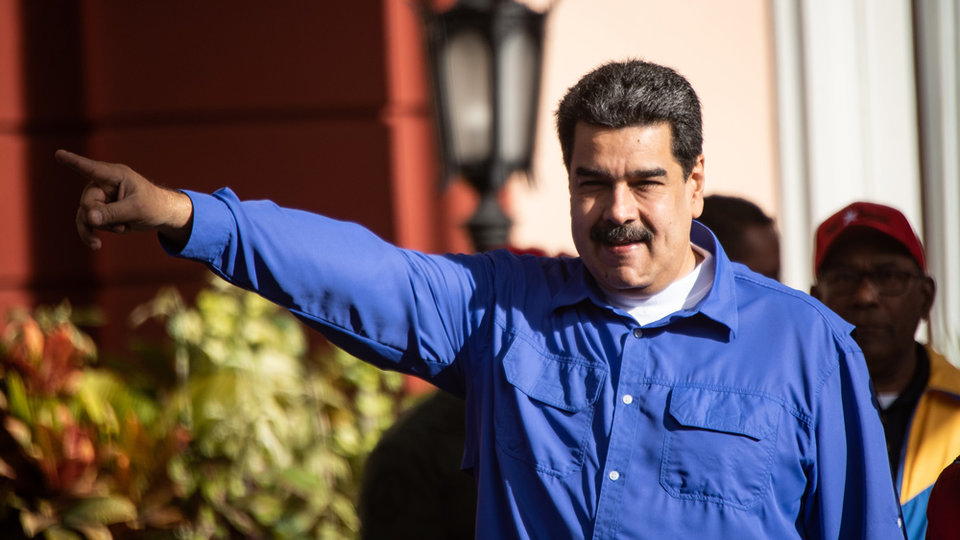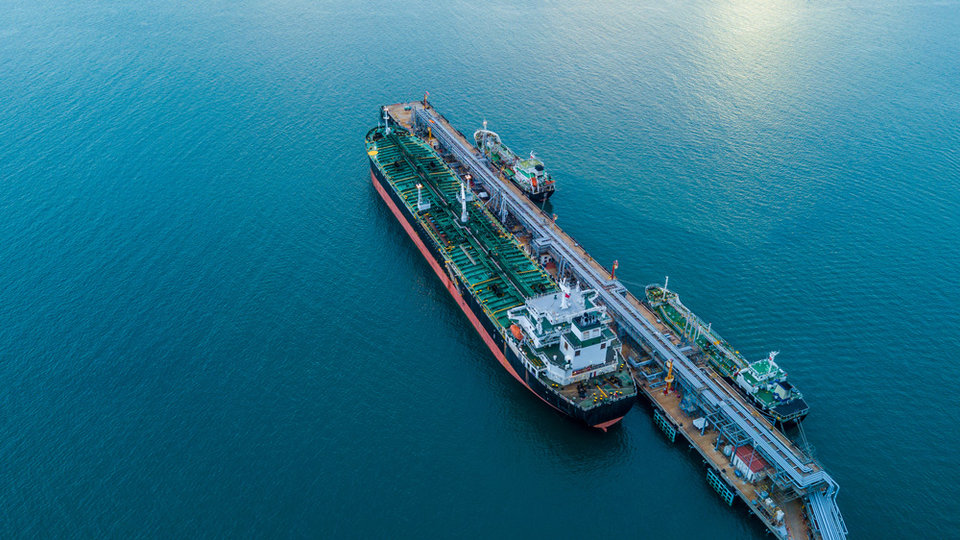Regional focus
How are US sanctions on Venezuela impacting shipping?
A set of sanctions recently introduced by the Trump administration on Venezuela’s oil exporting market, which put a chokehold on the country’s trading, is stopping shipping in its tracks. Adele Berti reports
Interim President Juan Guaidó protests in Venezuela. Image: Julio Lovera / Shutterstock.com
In January 2019,
the US Treasury Department introduced a set of sanctions on Venezuela’s state-owned oil company Petroleos De Venezuela S.A. (PDVSA) in a bid to cut support for President Nicolas Maduro’s totalitarian government.
The move, which initially meant US entities could not make cash purchases from PDVSA nor sell it fuel products, effectively targeted Venezuela’s oil sector, which accounts for about 90% of the country’s export revenues.
Three months down the line, the sanctions are starting to have the desired effect and are isolating Venezuela from making business with the US, the EU and several countries that are gradually less keen on dealing with PDVSA.
But the oil market isn’t the only one currently paying the price for Venezuela’s political turmoil. Shortly after the introduction of the sanctions, ship-monitoring website TankerTrackers.com said about a dozen oil tankers were left floating with nowhere to go while on their way to deliver crude to the US Gulf Coast.
As the Maduro leadership clings on, two ship owners have already announced they will no longer provide oil-shipping services to Venezuela, leaving the future of PDVSA and its suppliers more and more uncertain.
Stuart Rivers, CEO of Sailors’ Society.
Image courtesy of Sailors’ Society
The US sanctions explained
The Trump administration first announced plans to introduce sanctions at the end of January, after weeks of protests and political instability in Caracas sparked by Maduro’s re-election and his dispute with democratic contender Juan Guaidó.
According to Fernando Ferreira, research analyst at energy market, policy, and geopolitical consulting firm Rapidan Energy Group, the sanctions impede PDVSA from using the US financial system, meaning it cannot be paid in dollars, nor use US banks.
“As a result, PDVSA is now trying to shift contracts away from dollars and towards Europe and other countries,” says Ferreira.
The US is putting pressure on other governments, particularly India, to stop importing more Venezuelan oil
Currently focused on finding new clients willing to buy its rising amounts of floating storage (with onshore storage quickly running out), Venezuela’s main oil company is facing an increasingly tough task.
As Edward Glossop, emerging markets economist specialised in Latin America at Capital Economics explains, Venezuelan exports plummeted to almost nothing in March this year.
To complicate the situation further, the US is now currently starting to put pressures on a number of companies to stop contracting with PDVSA.
“The US is now putting pressure on other governments, particularly India, to stop importing more Venezuelan oil,” Glossop explains. “Some major Indian oil companies have now come out and said they are not going to be importing more Venezuelan oil.”

The president of Venezuela, Nicolás Maduro in Caracas. Image: StringerAL / Shutterstock.com
Image courtesy of
Troubled waters for the shipping sector
Despite not being directly subject to the US sanctions, the shipping sector has nevertheless seen a fair share of damages from the current political instability.
As reported by TankerTrackers.com, the implementation of the sanctions left several tankers idling off the Venezuelan coast with nowhere to go, while other vessels had to re-route or go way off-course, leaving their owners to face unexpected expenses and few alternatives to PDVSA.
As a result, in February, Norwegian marine insurance company Skuld released a statement warning the shipping sector of the possible negative effects the new sanctions could have, adding that “whilst some of the sanction provisions are inherently vague, and possibly subject to change, their effects on operations are nevertheless already being felt.
Vessel owners or operators who have contracts with PDVSA will be affected
“Vessel owners or operators who have contracts directly with PDVSA, or PDVSA subsidiaries, which oblige the vessels to carry the cargoes to the US, will be affected.”
The company also claimed vessels that are already on charter to PDVSA and its subsidiaries, and already loaded to deliver cargo in the US, will likely be directly affected by the sanctions.
Skuld said collateral damages and disputes between owners and charterers would result from ensuing delays and issues regarding the disposition of loaded cargo.
Similar problems, the company added, are also likely to affect vessels calling in Venezuela – whether contracted for US companies or not – which risked facing further delays due to the country’s general condition of instability.

Image courtesy of
The present and future of Venezuela’s shipping contractors
It took Skuld only a few weeks to see its predictions become reality, with Reuters reporting in mid-March that two of Venezuela’s major contractors had decided to withdraw their services.
In fact, weeks of uncertainty and delayed operations led US-based ship owner McQuilling Partners and German tanker operator Bernhard Schulte Shipmanagement (BSM) to announce they would no longer provide oil-shipping services to Venezuela.
BSM, which had been working for Venezuela for almost 25 years, said in a statement that due to the latest political developments, managing assets for Venezuela had become an “almost impossible task”, and would return its fleet of 15 vessels to PDVSA by the beginning of April.
Meanwhile, a McQuilling shipbroker told Reuters: “We’re steering clear. We obviously are not moving any barrels over there.”
As a result, being short of two major suppliers and stranded by sinking oil exports and growing political frictions, Venezuela now seems to be on the brink of collapsing.
As Capital Economics’ Glossop explains, the US is now more than ever dictating the rules of the game, putting new pressures on India and other countries to stop collaborating with PDVSA in what it hopes to be the final straw for the Maduro government.
We’re steering clear. We obviously are not moving any barrels over there
“It is a similar situation to what happened with Iran,” says Glossop, referring to the sanctions the Trump administration inflicted on Iran last year, which were intended to hit the oil industry, as well as shipping and banks.
According to Rapidan Energy’s Ferreira, if President Maduro continues to hold on, a similar fate could await Venezuela: “Increasingly, PDVSA will have to do what Iran is doing; eventually, they're going to have to provide their own insurance for the shipments, because they won't be able to clear payments or because insurance companies may not be able to insure PDVSA shipments.”
The situation is further aggravated by the fact that power is concentrated in the hands of very few, leaving no space for shipowners, PDVSA, or any other companies involved to lobby in favour of Maduro’s departure.
Nevertheless, Ferreira believes that the US’ ever tighter restrictions, falling oil prices and internal turmoil could eventually determine Maduro’s debacle: “Venezuela’s ability to get cash is crucial. Over the coming months, as production continues to decline and the risk of additional sanctions goes up, it is going to be very hard for Maduro to hold on. We expect him to be gone by the fourth quarter of the year.”